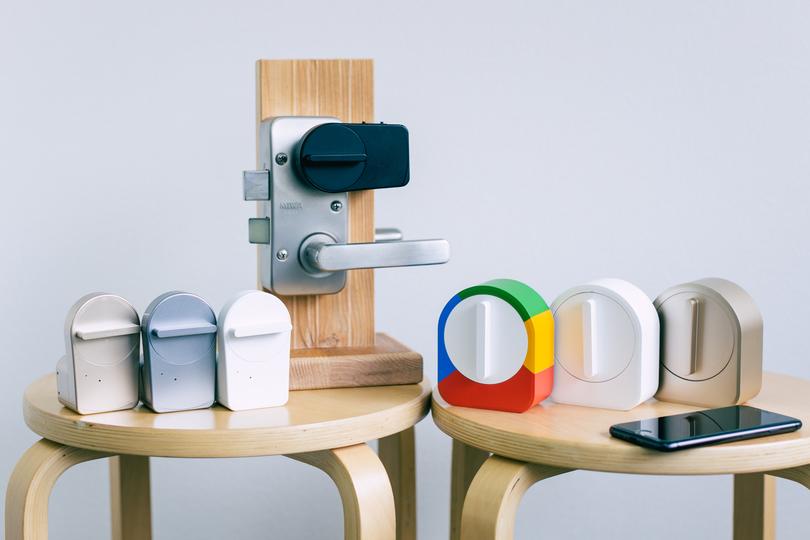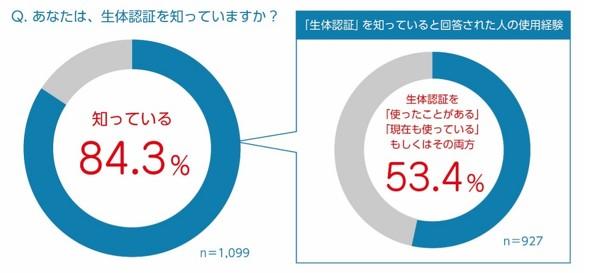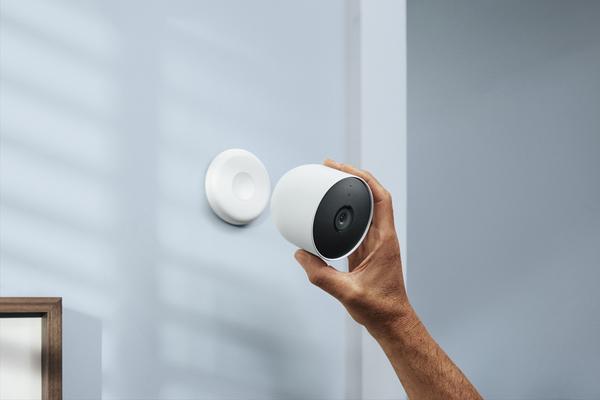A smart lock that can be opened, closed, and managed using a smartphone. In Japan, it was released one after another in 2015 and was said to be "the first year of smart lock", but so far it has not spread so far.
In the meantime, the evaluation of "SESAME", which landed from the United States in 2017, is increasing. In August 2018, the smaller and lighter Japanese specification "SESAME mini" was also launched and is attracting attention.
Developed by CANDY HOUSE, which has offices in San Francisco, Tokyo, and Taipei. We asked 30-year-old CEO Jamin Gu, who was born in 1988, about his dream, which he wanted to achieve even after dropping out of Stanford University.
Born in a student dormitory in Stanford
Jermin, CEO of CANDY HOUSE JAPAN, who launched a smart lock venture company in Silicon Valley
——Why did you start the smart lock business?
When I was 25, I studied abroad at Stanford University in the United States. Coming from Taiwan, I was shocked by the cashless lifestyle in the United States. Taiwan, like Japan, is a cash society. I immediately went to get a credit card and stopped carrying my wallet. At that time, I thought that it would be nice if I could make it so that I wouldn't have to carry the key around with me.
With that thought in 2014, I created a prototype of a smart lock using a 3D printer that I jointly purchased with a friend. It was my single-minded desire to realize a society where people don't carry around keys.
Financing through VC and crowdfunding
Sesame mini developed for Japanese housing (left) and the original US version of Sesame (right). Easy to install inside the door of your house. There is no change in the outer key slot, so you can use the conventional key as it is.
The first thing to do is raise funds. Raised about 30 million yen from venture capital in 2014. In 2015, we collected about 140 million yen on the US crowdfunding "Kickstarter" and used it to establish the company. After one year, we commercialized the first product in our smart lock series, "Sesame," and it became a big hit in the United States. I thought it would be great if people could experience this convenience in Japan as well.
Convenient for shared offices, shared houses, private lodgings
——How are products for Japan different from those sold in the US?
Japanese houses are smaller than American ones, aren't they? The "Sesame mini" for the Japanese market is a smaller and lighter sesame. It can be said that it is probably the world's smallest and lightest class at this stage. The specifications are almost the same as Sesame, but the useful functions are the same, the durability of the gear is 3 times longer, the Bluetooth communication range is extended by 110%, and the battery life is increased by 110%.

With Sesame and Sesame mini, you don't need to carry a key, you can not only open and close it, but also share the key with the app without creating a duplicate key, or remotely unlock it for your friends.
The app can record the history of who opened and closed the key at not only individual houses but also shared houses, shared offices, private lodgings, etc. It also supports Google Assistant, Amazon Alexa, and Siri.
Low cost, high performance, simple operation and excellent design. Currently, about 50,000 units are used around the world, including the United States, Japan, Canada, Sweden, Denmark, Norway, Singapore, and Malaysia. .
Since it is a type that can be easily installed later without the need for construction, it can also be opened and closed using a conventional key.
A world without keys. Manage your keys with an app! Smart lock SESAME Sesame mini for sale | MakuakeUnknown "military level" security
Mr. Jermyn works with his staff to improve the Sesame series and develop new products.
—— What will happen to the Japanese smart lock market in the future?
There are about 20 smart lock development companies in the United States, about 2000 in China, and only about 3 in Japan. In the first place, smart locks are not well known.
Japan is said to be conservative, and there seems to be concern about the safety of smart locks, but Sesame has adopted a strong encryption system that can be said to be military level. It's almost impossible to break through, and it would be faster to break the door than to challenge it.
Currently, 70% of Sesame series users are individuals. We have a high degree of freedom, such as opening our API to the public and linking with IFTTT (a service that allows you to combine and link different web services). I am receiving Recently, however, the range of users has expanded.
"It has an auto-lock function, which is very convenient." It's safe and easy to manage because a notification comes when you open it."
Built-in types for newly built apartments are increasing
With Sesame mini, you can open and close the key as if you were empty-handed. By setting the auto-lock function, Sesame senses coming home and unlocks. By setting the empty-handed unlocking function, Sesame will detect when you come home and unlock it, and the auto-lock function that automatically locks will prevent you from forgetting to close the key. There is also a function to unlock by knocking on the smartphone while it is in your pocket (currently iOS only).
Currently, we mainly sell post-installation types, but we have already partnered with a major OEM key manufacturer in Taiwan to develop a built-in product that incorporates Sesame into the key. It is wholesaled to a major American home center.
Even in Japan, we are jointly developing a product with a certain electronic lock manufacturer. At the end of 2018, we received a request from the city of Nanjing, China, to install built-in sesame in all rooms of a newly built condominium.
From now on, smart locks will be indispensable in society. We expect smart locks to be incorporated into more buildings.
I want to create a society without keys
Makuake, a site that supports new ideas through crowdfunding, is looking for supporters until October 30th. During the period, you can get Sesame mini at a special discount price.
——What is your future vision?
Product development that incorporates cutting-edge technology is progressing, such as the linking of various services and the cloud via smart speakers and IFTTT in the United States, face authentication and fingerprint authentication in China, and card functions such as Suica in Japan. increase. We are responding to this trend and developing products that are easier for more people to use.
Since the API is open to the public for free, in the near future I would like to create a key platform that can manage not only house keys but also garages, cars, lockers, and all other keys with a smartphone. And I want to make a world where we don't carry keys around a reality.
Click here for details on the SESAME mini
Makuake is offering a special discount on the Sesame mini until October 30, 2018.





![Customized items for the new "Toyota Noah / Voxy" appear from Modellista [Tokyo Auto Salon 2022] [News]](https://website-google-hk.oss-cn-hongkong.aliyuncs.com/drawing/article_results_9/2022/3/28/2fb1fdedaad7536dd6271db30561f588_0.jpeg)
![[New Toyota Voxy (90 series)] Amplifies the characteristics of the aero body! A design that further enhances the power of the front mask! #Works direct custom deep layer 001](https://website-google-hk.oss-cn-hongkong.aliyuncs.com/drawing/article_results_9/2022/3/25/01568e2fbf021c0eaf7d013507c850a4_0.jpeg)
![[Toyota Noah / Voxy new model] Modellista releases various customized parts ... Actual vehicle exhibited at Tokyo Auto Salon](https://website-google-hk.oss-cn-hongkong.aliyuncs.com/drawing/article_results_9/2022/3/25/8268612c1e5941e62d3dfd07f8991b2f_0.jpeg)

